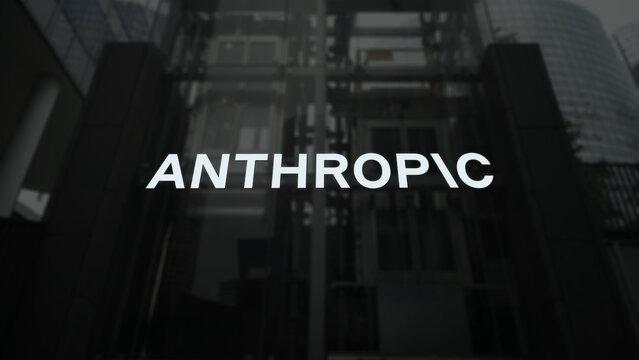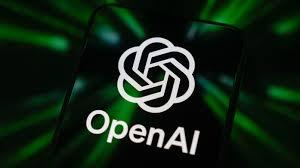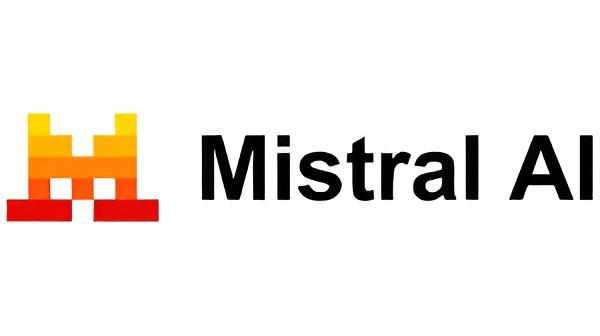
Anthropic–Rwanda–ALX: Turning AI Education into a Continent-Wide Superpower
Anthropic–Rwanda–ALX: Turning AI Education into a Continent-Wide Superpower
A bold new alliance between Anthropic, the Government of Rwanda, and African tech training provider ALX aims to put advanced AI learning tools into the hands of hundreds of thousands of people across Africa. At the heart of this effort is Chidi – a learning companion built on Anthropic's Claude model – designed to act less like a search engine and more like a thoughtful tutor.
In Rwanda, the government is weaving Chidi directly into the national education system. The country's ICT & Innovation and Education ministries are working with Anthropic to train up to 2,000 teachers and a group of civil servants to use AI in everyday work. These educators will learn, hands-on, how to use Claude to plan lessons, personalize support for students, and boost their own productivity. Graduates of the pilot will receive a full year of access to Claude tools, including Claude Pro and Claude Code, helping them carry this new AI literacy into classrooms, government offices, and the wider economy.
This initiative connects directly to Rwanda's long-term national strategy: Vision 2050. By treating AI not as a gadget but as core infrastructure for a "knowledge economy," Rwanda is betting that students and young professionals who grow up fluent in AI will launch startups that solve local problems, join global tech teams, and drive new industries. The partnership represents part skills program, part nation-building exercise – a way to make sure the country's youth are not just using AI tools made elsewhere, but shaping how they are used.
Anthropic's role focuses on ensuring this transformation happens responsibly. By training teachers, involving policymakers, and setting up working groups, Rwanda is building the foundations for what experts call responsible AI deployment. Instead of dropping powerful new technology into classrooms and hoping for the best, the partnership emphasizes capacity building: giving people the understanding and guardrails they need to use AI wisely, safely, and effectively.
ALX and Chidi: A "Socratic Mentor" for 200,000+ Learners
While Rwanda transforms its national education system, ALX is taking Chidi across the wider continent. As one of Africa's largest technology training providers, ALX already serves more than 200,000 students and young professionals. Every one of these learners will now get access to Claude through Chidi – but in a way that differs significantly from a typical chatbot.
Chidi operates as a "Socratic mentor". Instead of simply handing out answers, it asks probing questions, nudges learners to think through problems, and guides them step-by-step. This mirrors the approach of the ancient Greek philosopher Socrates, who used questions to help students discover answers for themselves. The aim is to build independent thinkers who can solve complex problems with AI, not depend on it blindly.
Early data from the rollout shows promising results. Since launching in early November, students have logged thousands of learning sessions and conversations with Chidi, with roughly nine out of ten reporting positive experiences. Specific use cases demonstrate Chidi helping users debug tricky code, understand tough data science topics, and strengthen their overall problem-solving skills. For young African technologists, this provides access to a highly skilled, always-available mentor.
ALX's leadership frames this partnership not as a one-way transfer of Western technology into Africa, but as "co-creating the future of learning" – using AI to unlock African talent so that today's students become tomorrow's architects of a technology-driven African economy.
Rwanda's Vision 2050: Building a National AI-Ready Workforce
Rwanda treats artificial intelligence not as a distant future concept, but as a core component of its national plan, Vision 2050. The strategy is ambitious yet straightforward: transform Rwanda into a knowledge-driven economy by training an AI-ready workforce today, enabling young people to build the companies, tools, and solutions of tomorrow.
To achieve this goal, Rwanda is integrating AI directly into its national education system. Rather than making AI a specialist topic for select experts, the country is converting it into a daily tool for teachers, students, and civil servants. Anthropic's Claude, delivered through the learning companion "Chidi," serves as a digital co-pilot that helps people across Rwanda learn faster and work smarter.
AI in Every Classroom: Teachers as Frontline Innovators
A crucial element of Vision 2050 involves upgrading the skills of educators who shape minds daily. The government plans to train up to 2,000 teachers, plus a group of civil servants, to use AI confidently and responsibly. They are learning to design personalized lesson plans, create adaptive learning experiences for different student needs, automate routine administrative tasks, and access real-time insights about student progress and engagement.
This approach focuses on augmenting rather than replacing teachers. The initiative gives educators a powerful assistant that helps them excel at uniquely human capabilities: explaining complex concepts, encouraging struggling students, and inspiring academic achievement.
Graduates of Rwanda's pilot program receive a full year of access to Claude tools, including advanced options for individuals and developer teams. This ensures that acquired skills become integrated into everyday classroom and government work long after initial training concludes.
From Classrooms to Startups: Fuel for a Knowledge Economy
Vision 2050 extends beyond improved lessons to comprehensive economic transformation. As more Rwandans master AI usage, several significant shifts become possible: young graduates can launch AI-powered startups addressing local challenges, Rwanda can attract global technology companies seeking AI-skilled talent, government services can become more efficient and responsive through AI integration, and the country can position itself as a regional hub for AI innovation and education.
Rwanda's leaders view youth and technology as the primary engine of national progress. By simultaneously placing AI skills in the hands of young graduates, teachers, and policymakers, the country builds an ecosystem where innovation can spread rapidly rather than remaining confined to isolated laboratories or elite institutions.
Transforming Teachers and Civil Servants into AI Pioneers
Rwanda is converting its teachers and civil servants into some of Africa's first large-scale AI power users. Rather than restricting artificial intelligence to laboratories or technology hubs, the Rwandan government places Claude tools directly in classrooms and government offices, putting advanced AI capabilities in the hands of everyday professionals.
The centerpiece of this effort is a comprehensive training program for up to 2,000 teachers and a cohort of civil servants across the country. These educators and officials are not merely learning theoretical AI concepts; they receive hands-on training to use Claude in practical, day-to-day applications. Teachers experiment with Claude to generate creative lesson ideas, provide personalized feedback to students, streamline grading and administrative tasks, and research new teaching methods and content.
Civil servants learn to use Claude for boosting productivity and supporting digital transformation within government operations. For them, Claude functions as an intelligent colleague that can help draft documents, analyze complex information, and explore policy ideas with greater speed and clarity.
Program graduates receive full-year access to Claude tools, including Claude Pro for individuals and Claude Code for government developer teams. This extended access means that after initial training ends, these teachers and civil servants can continue using AI daily, deepening their expertise and spreading AI literacy throughout their schools and departments.
ALX's Continent-Wide Rollout: An AI Mentor for Millions
ALX is taking a transformative step to revolutionize how Africans learn technology by deploying Chidi, a "Socratic" AI mentor built on Anthropic's Claude, across the entire continent. Rather than functioning as a shortcut that merely provides answers, Chidi behaves like a wise coach: asking questions, encouraging deeper thinking, and guiding learners to discover solutions independently.
ALX, already one of Africa's largest technology training providers, reaches over 200,000 students and young professionals. All of them now gain access to Chidi within their programs. Whether someone is learning coding, data science, or cloud computing, they have an AI mentor available at any time – not to complete their work, but to help them learn more effectively.
The "Socratic mentor" concept is both powerful and straightforward. Instead of declaring "Here's the solution," Chidi asks "How would you approach this step?" or "What do you think is missing in your code?" This methodology mirrors effective human tutoring: breaking complex problems into manageable components, encouraging learners to reason through challenges, and building genuine understanding rather than rote memorization.
Early adoption data demonstrates rapid learner engagement with this AI companion. Since the November 4 rollout began, students have logged more than 1,100 conversations and nearly 4,000 learning sessions with Chidi, with an impressive nine out of ten users reporting positive experiences. Each statistic represents learners tackling challenging code bugs, grasping difficult data science concepts, or building confidence to explore new technical domains.
Anthropic's Global AI-for-Education Initiative
Anthropic is constructing a comprehensive global AI education network, placing powerful tools directly into the hands of teachers, students, and civil servants across multiple continents. Claude, Anthropic's AI system, and Chidi, a learning companion built on Claude, are beginning to reshape educational approaches in Africa and beyond.
The partnership with Rwanda and ALX represents part of Anthropic's broader "AI for education" strategy that treats AI as public infrastructure for learning rather than merely a commercial product. Similar initiatives are developing in Iceland, the United Kingdom, and India, each tailored to local educational needs and cultural contexts.
These global efforts share common principles: close collaboration with governments, universities, and training providers; customization of AI tools to meet local requirements; and ensuring technology expands educational opportunity rather than concentrating it among select populations.
Why This Partnership Represents a Paradigm Shift
The Rwanda–ALX–Anthropic partnership operates as a live case study in how AI can fundamentally change educational and workforce development approaches. Three key elements distinguish this initiative: unprecedented scale, with AI tools reaching hundreds of thousands of learners simultaneously; practical integration, embedding AI into daily teaching and learning rather than treating it as supplementary technology; and responsible deployment, involving policymakers and educators from the beginning to ensure ethical and effective implementation.
This comprehensive approach means AI becomes part of Rwanda's institutional foundation rather than a temporary experiment. It reduces the risk of "AI hype" that dissipates after pilot programs, instead building durable capabilities, governance frameworks, and practical experience aligned with Vision 2050.
For observers of education, technology, and talent development in Africa, this initiative demonstrates a fundamental shift: transforming AI from a simple answer-generating machine into a patient, persistent mentor that helps unlock human potential at continental scale. Teachers become AI-enhanced educators, civil servants become AI-empowered problem solvers, and students become architects of Africa's technology-driven future.
By treating AI as a national skill set rather than a novelty gadget, Rwanda is pioneering an approach that other nations and regions are closely watching. The success of this partnership could provide a template for responsible AI integration in education systems worldwide, proving that advanced technology can serve human development goals when implemented with careful planning, strong partnerships, and unwavering focus on building local capacity and capability.







